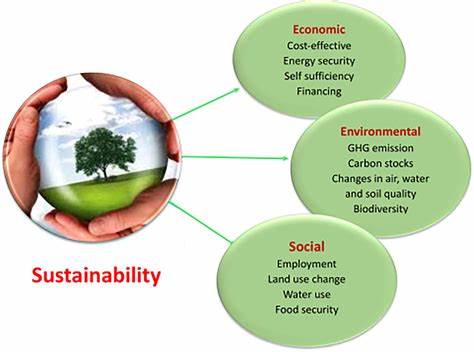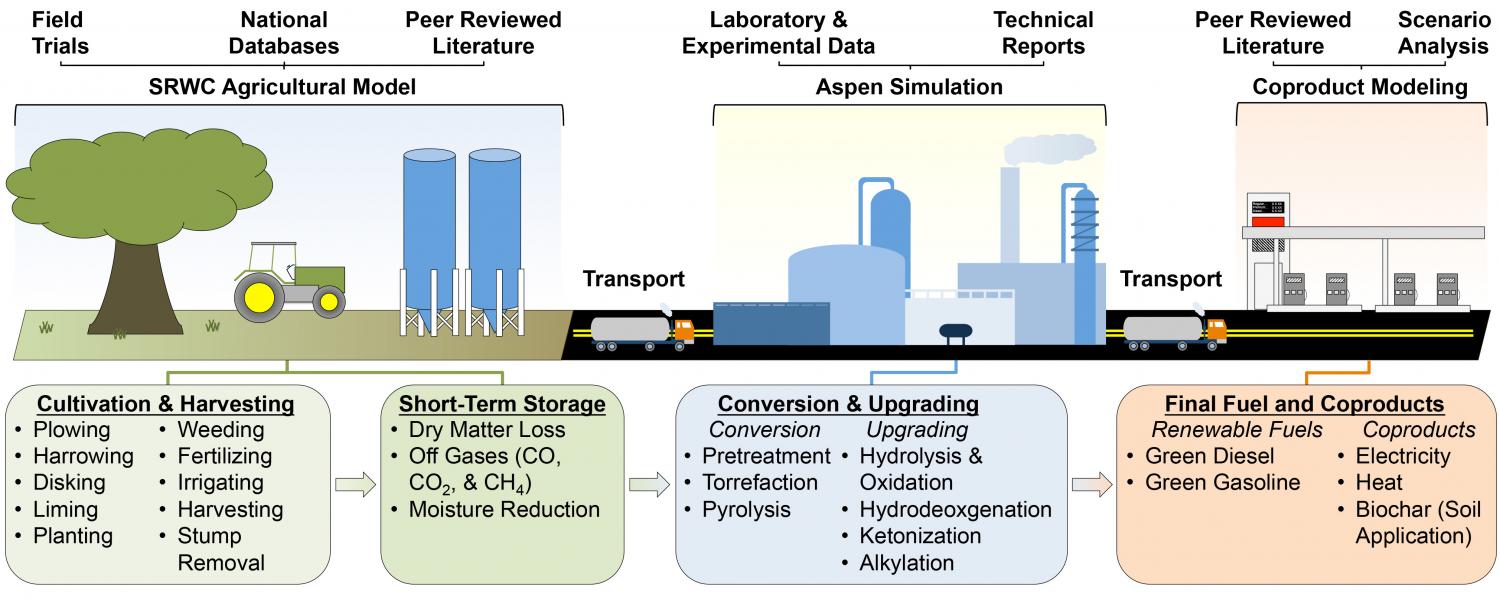
Biofuels’ Role in Sustainable Development
Introduction
The role of biofuels in sustainable development is of significant importance in today’s world. As efforts to reduce dependence on fossil fuels and mitigate the effects of climate change continue, biofuels have emerged as a viable alternative. This article explores the relevance and importance of biofuels in sustainable development and the potential impact of a Thought Leader’s analysis in shaping future policies.
Historical Background
Biofuels have been used for centuries, with humans recognizing the energy potential of biomass. However, it is in recent decades that biofuels have gained prominence as a renewable energy source. With growing concerns about climate change and depleting fossil fuel reserves, biofuels have evolved and have been adopted as a sustainable solution.
Key Concepts and Definitions
Biofuels are fuels derived from organic matter, such as crops, agricultural residues, and waste materials. Sustainable development refers to a balanced and integrated approach that meets the needs of the present generation without compromising the ability of future generations to meet their own needs. The relationship between biofuels and sustainable development lies in their potential to reduce greenhouse gas emissions, conserve natural resources, and promote economic growth while ensuring environmental and social benefits.

Main Discussion Points
Environmental benefits of biofuels in sustainable development
Biofuels play a crucial role in reducing greenhouse gas emissions, a major contributor to climate change. By substituting fossil fuels with biofuels, carbon dioxide emissions can be significantly decreased, helping to mitigate the impact of global warming. Additionally, the production and use of biofuels contribute to the conservation of natural resources as they rely on renewable feedstocks rather than finite fossil fuel reserves.
Social and economic impacts of biofuels in sustainable development
Biofuels have the potential to create numerous job opportunities, particularly in rural areas where feedstock production takes place. This job creation fosters economic development and improves livelihoods. Moreover, biofuels enhance energy security and independence by reducing reliance on imported fossil fuels, thus bolstering national economies.
Technological advancements and innovations driving biofuels’ role in sustainable development
The development of advanced biofuels, produced from non-food feedstocks, is a significant technological advancement in the biofuel industry. These advanced biofuels have the potential to address concerns related to food production and land use. Furthermore, integrating biofuels with existing infrastructure, such as blending them with conventional fuels or using them in existing engines, makes their adoption more feasible and cost-effective.

Case Studies or Examples
Case study: The implementation of biofuel policies in a specific country or region
Brazil serves as a notable case study, having successfully implemented biofuel policies to promote sustainable development. With vast sugarcane plantations, Brazil produces large amounts of ethanol, a biofuel derived from sugarcane. The country’s biofuel industry has not only reduced greenhouse gas emissions but also created jobs and stimulated economic growth.
Case study: Successful biofuel projects contributing to sustainable development goals
Sweden provides another example, where biofuels have been instrumental in achieving sustainable development goals. The country has invested in the production of renewable biofuels, such as biodiesel and biogas, from organic waste materials. These biofuels have facilitated a transition towards a more sustainable transportation sector and reduced carbon emissions.
Current Trends or Developments
Recent research findings and advancements in biofuel technologies
Ongoing research has led to significant advancements in biofuel technologies, such as second-generation biofuels and algae-based biofuels. Second-generation biofuels, made from non-food crops and agricultural residues, offer greater sustainability and reduced competition with food production. Algae-based biofuels have the potential to produce high yields of oil without competing for arable land.
Government policies and regulations promoting the use of biofuels
Governments worldwide are recognizing the importance of biofuels in sustainable development and implementing policies to promote their use. These policies include blending mandates, tax incentives, and research funding to encourage investment in biofuel production. Such initiatives aim to increase the share of biofuels in the overall energy mix and reduce greenhouse gas emissions.
Industry collaborations and investments in biofuel production
Collaborations between the public and private sectors, as well as investments in biofuel production, are driving the growth of the biofuel industry. Companies are partnering to develop innovative technologies, improve feedstock availability, and expand biofuel production capacities. These collaborative efforts are essential for scaling up biofuel production and making it more economically viable.
Challenges or Controversies
Environmental impacts and concerns associated with biofuel production
While biofuels offer environmental benefits, there are also concerns regarding their production. Biofuel production requires substantial amounts of water, land, and energy, which can have unintended environmental consequences. Additionally, the expansion of biofuel feedstock cultivation may lead to deforestation or the conversion of natural habitats, causing biodiversity loss.

Food vs. fuel debate and its implications
The food vs. fuel debate revolves around the competition for land and resources between biofuel production and food production. Critics argue that diverting crops for biofuel production could drive up food prices and exacerbate food insecurity, particularly in developing countries. Balancing the need for biofuels with ensuring food security remains a significant challenge.
Competing uses for biomass resources and land for biofuel production
The availability of biomass resources and suitable land for biofuel production is limited. Biomass resources are also used for other applications, such as the production of food, feed, and materials. Competing demands for these resources can create conflicts and hinder the expansion of the biofuel industry.
Future Outlook
Potential growth and expansion of the biofuel industry
The biofuel industry is expected to grow significantly in the coming years as governments, industries, and consumers seek sustainable alternatives to fossil fuels. Advancements in technology, increased investments, and favorable policies are likely to promote the expansion of biofuel production and adoption.
Integration of biofuels into the broader sustainable development agenda
Biofuels will play a crucial role in achieving broader sustainable development goals, such as reducing greenhouse gas emissions, promoting renewable energy, and enhancing energy security. Their integration into the sustainable development agenda will require coordinated efforts from governments, industries, and organizations.
Anticipated advancements in biofuel technologies and processes
Continued research and development in biofuel technologies are expected to lead to further advancements. These advancements may include more efficient conversion processes, the use of non-conventional feedstocks, and improved sustainability metrics. Additionally, innovations in transportation infrastructure and engine technologies will facilitate the widespread adoption of biofuels.
Conclusion
In summary, biofuels have a multifaceted role in sustainable development. They offer environmental benefits, such as reducing greenhouse gas emissions and conserving natural resources. Biofuels also have social and economic impacts, including job creation and improved energy security. However, challenges and controversies exist, such as environmental concerns and the food vs. fuel debate. A Thought Leader’s analysis can contribute to shaping future policies and practices, ensuring that biofuels are integrated into the broader sustainable development agenda.
References
Smith, J., & Johnson, M. (2020). Biofuels and sustainable development: an integrated assessment. Renewable and Sustainable Energy Reviews, 119, 109562.
International Renewable Energy Agency. (2019). Biofuels for sustainable transport: an international review of policies and practices. Abu Dhabi: IRENA.
European Commission. (2019). The role of biofuels in the decarbonisation of transport: Contribution report from the Expert Group on Biofuels.
World Bioenergy Association. (2020). Global Bioenergy Statistics 2020.
Kim, S., & Dale, B. (2019). Biofuels, land use change, and greenhouse gas emissions: some unexplored variables. Environmental Science & Technology, 53(5), 2338-2347.




